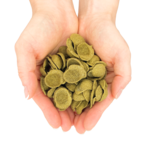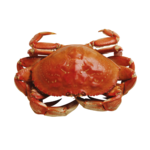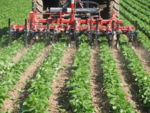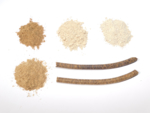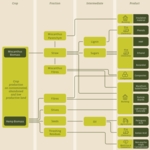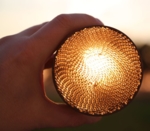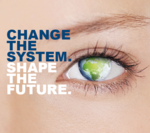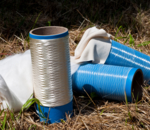-
Press release - 09/07/2021
Refuels are renewable fuels that can be produced in different ways. When they are mixed and processed such that they meet the existing fuel standards, they are suited for all types of combustion engines. This is the result of the latest vehicle and fleet tests within the project “reFuels – Rethinking Fuels” at Karlsruhe Institute of Technology (KIT). Compared to fully fossil fuels, refuel mixes allow for a CO2 reduction by 25% at least. Moreover,…
https://www.biooekonomie-bw.de/en/articles/pm/refuels-are-suited-wide-use
-
-
Start-up kernique catch the zeitgeist - 29/06/2021
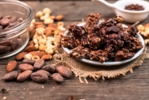
A delicious vegan nut snack that uses no sugar, artificial additives, gluten or palm oil, is full of essential nutrients, and is part of a commitment to environmental and social sustainability. Impossible? An Esslingen-based start-up called kernique proves otherwise. The start-up is currently planning a crowdfunding phase that offers a lucrative deal for investors. The idea catches the zeitgeist, but what exactly makes it stand out?
https://www.biooekonomie-bw.de/en/articles/news/nut-snack-sustainable-ecological-concept
-
-
Press release - 15/06/2021
Microorganisms are the oldest, most abundant, and most diverse life forms on earth and offer enormous potential for biotechnological applications. To date, however, only a fraction of them could be isolated and cultivated. The “MicroMATRIX” research project, funded with € 1.5 million by the German Federal Ministry of Education and Research and led by Karlsruhe Institute of Technology (KIT), aims to shed more light on the microbial darkness.
https://www.biooekonomie-bw.de/en/articles/pm/biooekonomie-von-der-wg-ins-mikroben-eigenheim
-
-
-
Press release - 27/05/2021
The pulp of coffee beans is considered a waste product on coffee plantations, which is usually thrown away or dumped into rivers - with significant negative consequences for climate change and the environment. Macarena San Martín-Ruiz from the University of Stuttgart is working with Coopetarrazú, the largest coffee cooperative in Costa Rica, to find out how the mixture of pulp and husks can be turned into organic compost and thus protect the…
https://www.biooekonomie-bw.de/en/articles/pm/coffee-s-pulp-waste-becomes-organic-compost
-
Press release - 18/05/2021
The Bio-based Industries Joint Undertaking (BBI JU) has signed the grant agreements with 18 new projects, selected for funding under the 2020 Call for proposals. 199 beneficiaries from 26 countries across the EU and beyond will receive BBI JU’s financial support worth €104.5 million. This is the seventh and last BBI JU call which will bring the total investment of the initiative to €821.6 million and the BBI JU’s portfolio to 142 projects.
https://www.biooekonomie-bw.de/en/articles/pm/bbi-ju-invest-eur1045-million-circular-bio-based-projects
-
Press release - 03/05/2021
The amount of plastic waste increases every year. Some of this waste is due to plastic packaging used to protect food. As part of the “BioActiveMaterials” project, researchers at the Fraunhofer-Gesellschaft have developed an eco-friendly coating for paper packaging. With this, not only is plastic saved, but the coating of plant-based proteins and waxes also extends the shelf life of the food.
https://www.biooekonomie-bw.de/en/articles/pm/bioactive-paper-coatings-replace-plastic-packaging-foods
-
-
-
-
Press release - 20/04/2021
Protecting the global climate is an undertaking that presents both industry and society with a major task. It will not be possible to achieve the climate targets simply by limiting global emissions, by saving carbon dioxide (CO2). This is because there will continue to be unavoidable CO2 emissions that will nevertheless have to be compensated.
https://www.biooekonomie-bw.de/en/articles/pm/cellulosefasern-gegen-den-klimawandel
-
-
-
-
Paper technology - 10/03/2021
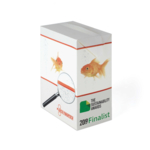
Plastic is indispensable: it is cheap and practical and found in many disposable products such as drinking straws, disposable tableware or even packaging like bonded beverage cartons or bags – and it has a disastrous effect on the environment. The start-up company Plafco Fibertech Oy has developed a sustainable plastic substitute made of paper that could replace many disposable plastic products in the future.
https://www.biooekonomie-bw.de/en/articles/news/plafco-sustainable-plastic-substitute-made-paper
-
-
Press release - 23/02/2021
The European Commission agreed on the successor of BBI JU – the Circular Bio-based Europe Joint Undertaking (CBE JU) in a legislative proposal adopted today. The new partnership between the EU and the Bio-based Industries Consortium (BIC) is expected to build on the success of BBI JU while stepping up its contribution to the EU’s climate targets, in line with the European Green Deal. The European Parliament and Council will now study the…
https://www.biooekonomie-bw.de/en/articles/pm/commission-gives-green-light-successor-bbi-ju
-
-
-
-
Press release - 26/01/2021
The University of Warmia and Mazury in Olsztyn, Polish partner of the BalticBiomass4Value project, published a report which maps biomass value chains for improved sustainable energy use in the Baltic Sea Region countries. The research focuses on the 9 Baltic Sea Region (BSR) countries: Denmark, Germany, Estonia, Finland, Latvia, Lithuania, Poland, Sweden, and Norway.
https://www.biooekonomie-bw.de/en/articles/pm/report-mapping-biomass-value-chains-improved-sustainable-energy-use-baltic-sea-region-countries-published
-
Paper production from plant fibres - 20/01/2021

Many consumers don't care about exactly how their paper packaging is made and what it is made of as long as it is "eco". But even producing recycled paper, trees need to be felled. An alternative could be paper made from cup plant. Together with partners, a company called Silphie Paper has developed concept for obtaining fibres for a new type of grass paper, while also producing heat, energy and nutrients for natural fertilisers.
https://www.biooekonomie-bw.de/en/articles/news/one-cycle-ecopaper-energy-and-fertiliser-made-silphium-perfoliatum
-
-
Press release - 04/01/2021
As healthy and tasty as mushrooms might be, they are good for much more than just the dinner plate. The Fraunhofer Institute for Environmental, Safety and Energy Technology UMSICHT has now teamed up with the Fraunhofer Institute for Building Physics IBP to investigate the use of fungus-based materials for the fabrication of eco-friendly sound absorbers.
https://www.biooekonomie-bw.de/en/articles/pm/Fungus-as-a-sound-absorber
-
-
Dossier - 09/11/2020

What will the packaging of the future look like, and what will be required of it? Can packaging be biobased, recyclable, sustainable and economic? In Baden-Württemberg, there are various approaches to developing packaging with the above properties from various sources including agricultural residual and side streams as well as municipal waste.
https://www.biooekonomie-bw.de/en/articles/dossiers/packaging-future
-
-
Phosphorus recovery from sewage sludge - 21/10/2020
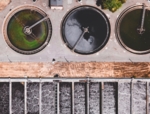
Biotechnology for the bioeconomy: in something known as the P-bac process, sulphur bacteria extract phosphorus from sewage sludge ash. Phosphorus is one of the key building blocks of life and an essential nutrient for plant growth. When there is not enough phosphorus in the soil, farmers apply it via organic or mineral fertilisers.
https://www.biooekonomie-bw.de/en/articles/news/bacteria-help-recycle-phosphorus
-
Dossier - 28/04/2020
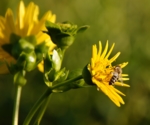
Biomass from forestry and agriculture along with residues from industry and households can contribute to our energy and raw material shift. Sustainable, regenerative biomass-based energy can become part of the energy mix of the future within the framework of a bioeconomy.
https://www.biooekonomie-bw.de/en/articles/news/Sustainable-bioenergy
-
Urban agriculture - 23/04/2020
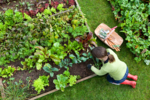
Given the challenges faced by modern agriculture, it is vital to raise people’s awareness of how to change their approach to food. The founders of the Stuttgart-based start-up company farmee GmbH see urban agriculture as the key to making this change possible. The company has developed “alphabeet”, an app designed to encourage consumers to produce their own food. After all, only those combining knowledge and practical experience can be expected…
https://www.biooekonomie-bw.de/en/articles/news/alphabeet-the-green-fingered-smartphone
-
Biosensors - 09/04/2020
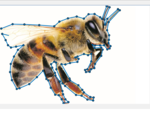
Sensor networks are one of the keys to achieving digitalisation of the bioeconomy. Sensor networks are on the way to becoming important analysis and control instruments for energy-efficient and sustainable material cycles. Dieter Hertweck, Professor of Business Information Systems at Reutlingen University of Applied Sciences, shows what is already possible in digital agriculture and waste recycling and what is feasible for the future.
https://www.biooekonomie-bw.de/en/articles/news/Sensors-for-the-bioeconomy
-
-
Biogas and wood as components of the energy transition - 10/02/2020
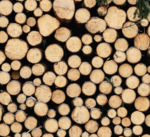
Decentralised, controllable and stable - renewable energy is an important component in the transition to a bioeconomy without fossil fuels. BIOPRO spoke to PD Dr. Andreas Lemmer from the State Institute of Agricultural Engineering and Bioenergy at the University of Hohenheim and Prof. Dr. Stefan Pelz, scientific director of the Institute for Applied Research and professorat the University of Applied Forest Sciences Rottenburg.
https://www.biooekonomie-bw.de/en/articles/news/New-perspectives-for-bioenergy
-
Producing valuable new products from waste materials - 07/01/2020
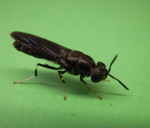
Eco-friendly and responsibly manufactured products are more in demand than ever before. Specific research is being carried out into materials and applications for a wide variety of uses. The Fraunhofer Institute for Interfacial Engineering and Biotechnology IGB is working with Hermetia Baruth GmbH on the vision of an insect biofactory that uses waste materials to produce a wide range of products such as biosurfactants, animal feed or foils.
https://www.biooekonomie-bw.de/en/articles/news/A-vision-insect-biorefineries-as-components-of-a-sustainable-bioeconomy
-
EIP-AGRI project coordination - 12/12/2019
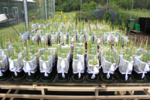
Lentil plants, rarely cultivated in Central Europe in the twentieth century, are making a comeback. The "Rhizo-Linse"1 EIP-AGRI project aims to reintroduce old lentil varieties and make them appealing to farmers. A company called nadicom Gesellschaft für angewandte Mikrobiologie mbH is working on the development of an ecological product consisting of nodule bacteria that can improve lentil plant growth.
https://www.biooekonomie-bw.de/en/articles/news/nadicom-Rhizo-Linse-project-excellent-small-fertiliser-factories
-
Two-part interview part 1 | Prof. Dr. Regina Birner on the green genetic engineering debate - 12/08/2019

Green genetic engineering continues to divide opinion in Germany in the same way as CRISPR/Cas and other genome editing (GE) techniques. What are the consequences for the bioeconomy, which involves key areas of biotechnology? We talked with Prof. Dr. Regina Birner, agricultural economist and head of Hohenheim University’s Department of Social and Institutional Change in Agricultural Development at the Institute of Agricultural and Social…
https://www.biooekonomie-bw.de/agricultural-economist-birner-calls-for-other-forms-of-dialogue-besides-organized-interest-groups
-
-
-
-
Dossier - 15/04/2019
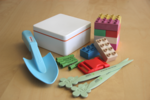
Plastic waste takes years to decompose and pollutes the environment. Nevertheless, plastics are an indispensable part of everyday life. It is therefore all the more important to find a meaningful alternative that is sustainable, environmentally friendly and has better properties and more functionality than conventional plastics. In addition, such an alternative should not be dependent in any way on fossil resources.
https://www.biooekonomie-bw.de/en/articles/dossiers/the-alternative-bioplastics
-
Article - 27/03/2019
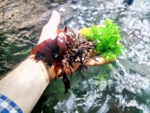
Algae are frugal organisms. They require only light, water, minerals and carbon dioxide to be able to produce biomass. These properties will now be exploited economically in a two-year research project. Dr. Stefan Sebök from the University of Hamburg plans to study the holistic utilisation of degradation products of a biogas plant in Wallerstädten by linking them to land-based algae cultivation.
https://www.biooekonomie-bw.de/en/articles/news/residues-from-biogas-plants-as-feed-for-algae
-
-
Article - 12/03/2019
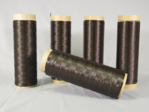
Carbon fibre is increasingly found in airplanes, cars and wind turbines. Carbon fibre is still made from oil and relatively expensive. However, this is soon to change. Researchers from the German Institutes of Textile and Fibre Research in Denkendorf (DITF) are working on the development of cost-effective carbon fibre made of lignin, a by-product of papermaking.
https://www.biooekonomie-bw.de/en/articles/news/biocarbon-fibres-made-of-lignin
-
Dossier - 04/03/2019
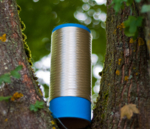
Baden-Württemberg is known for innovation in textiles and for playing a decisive role in the development of sustainable textiles for the future both in the clothing and the booming technical textile sectors. Companies and research institutes are focused on making the entire textile value chain from raw materials, production and useful life to disposal more sustainable than ever before.
https://www.biooekonomie-bw.de/en/articles/dossiers/sustainable-textiles
-
Website address: https://www.biooekonomie-bw.de/en/search


